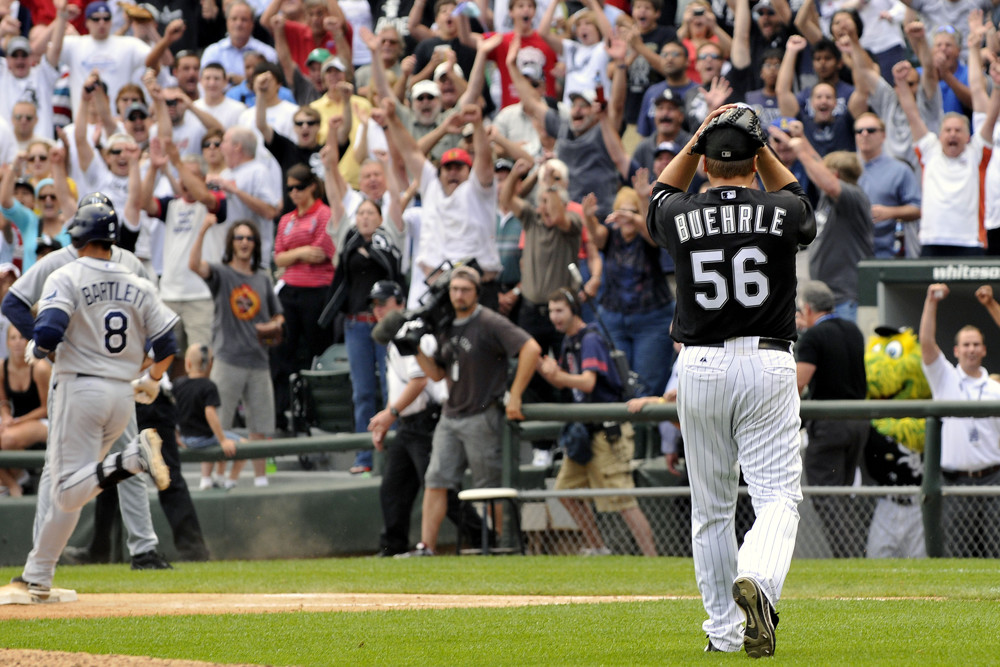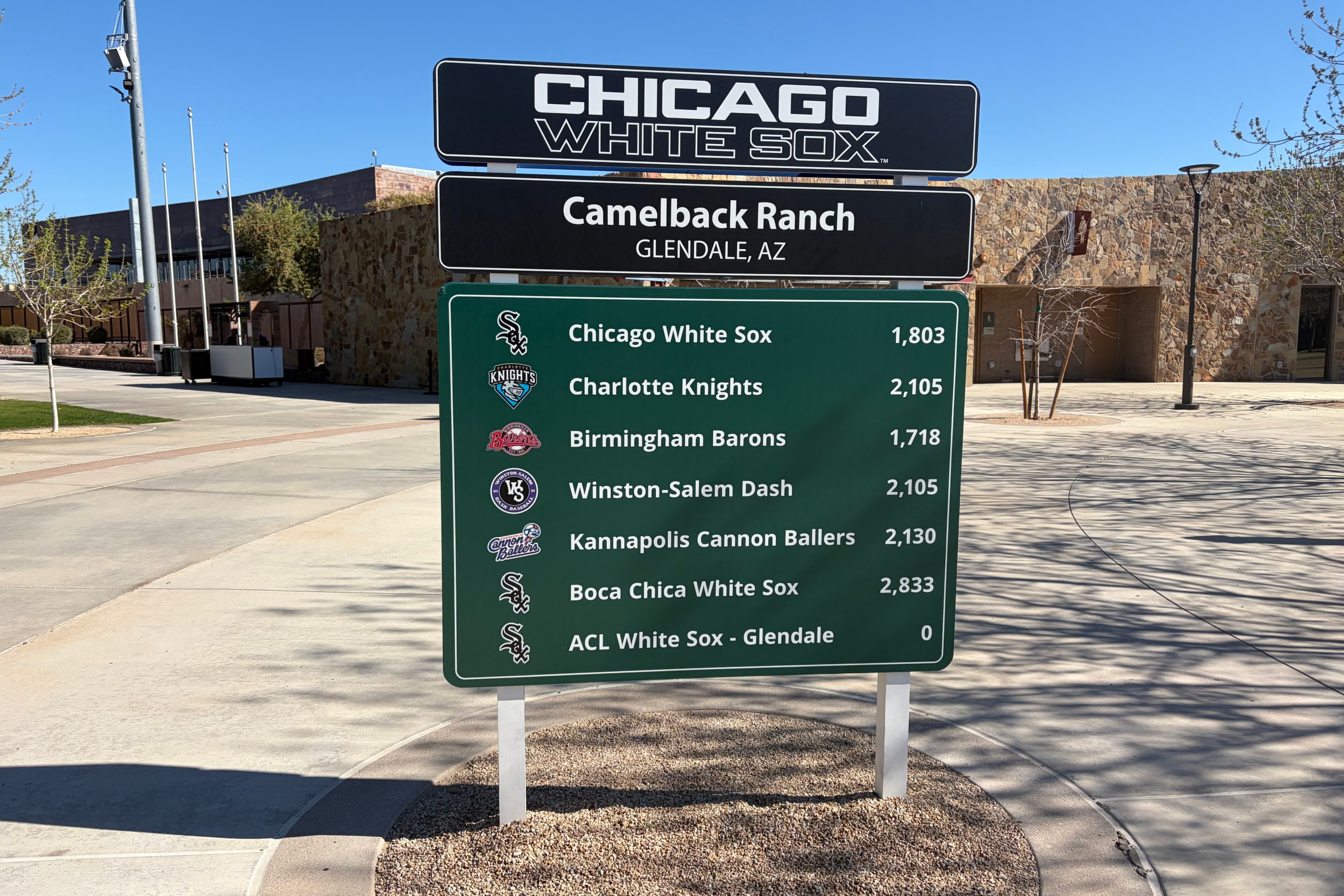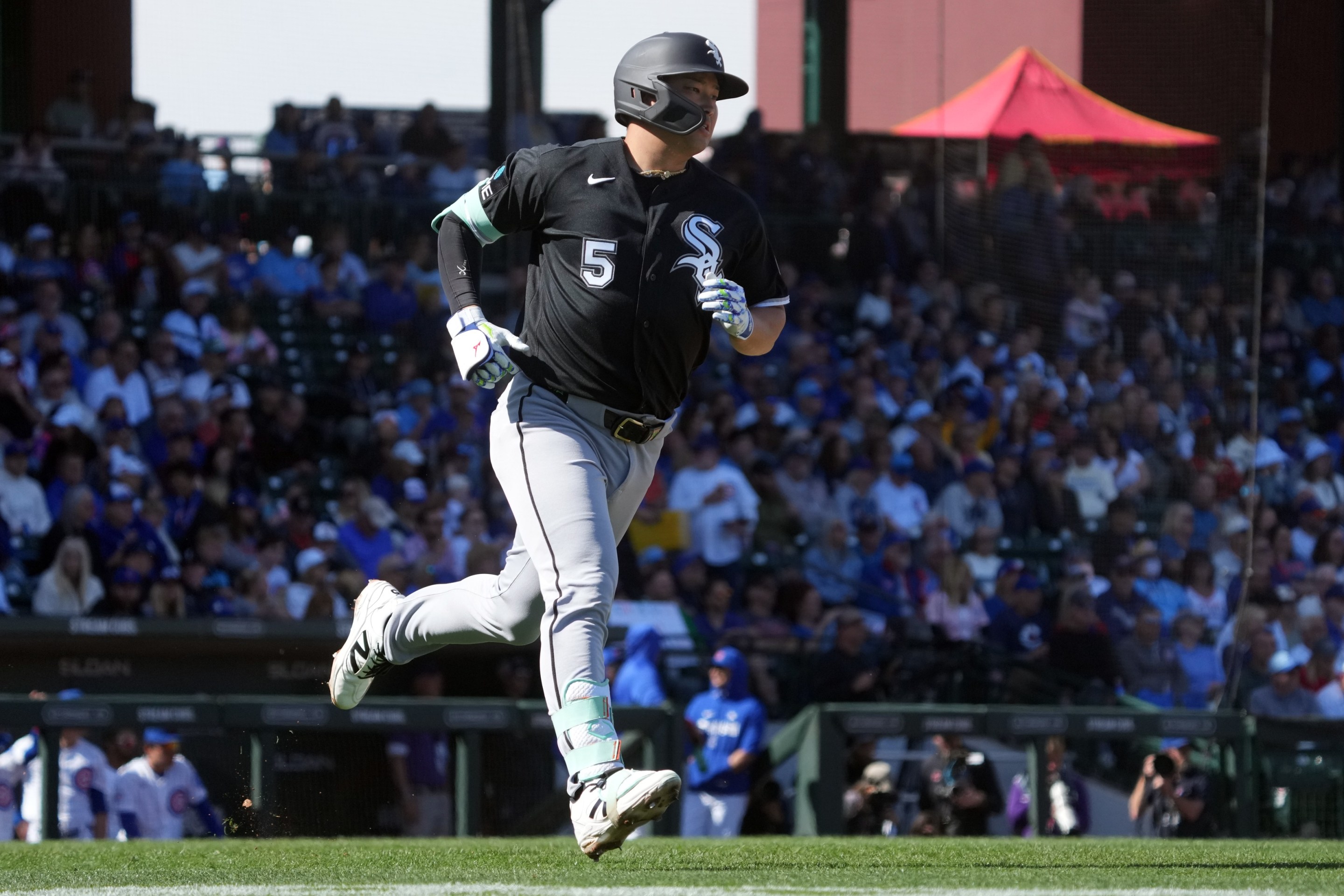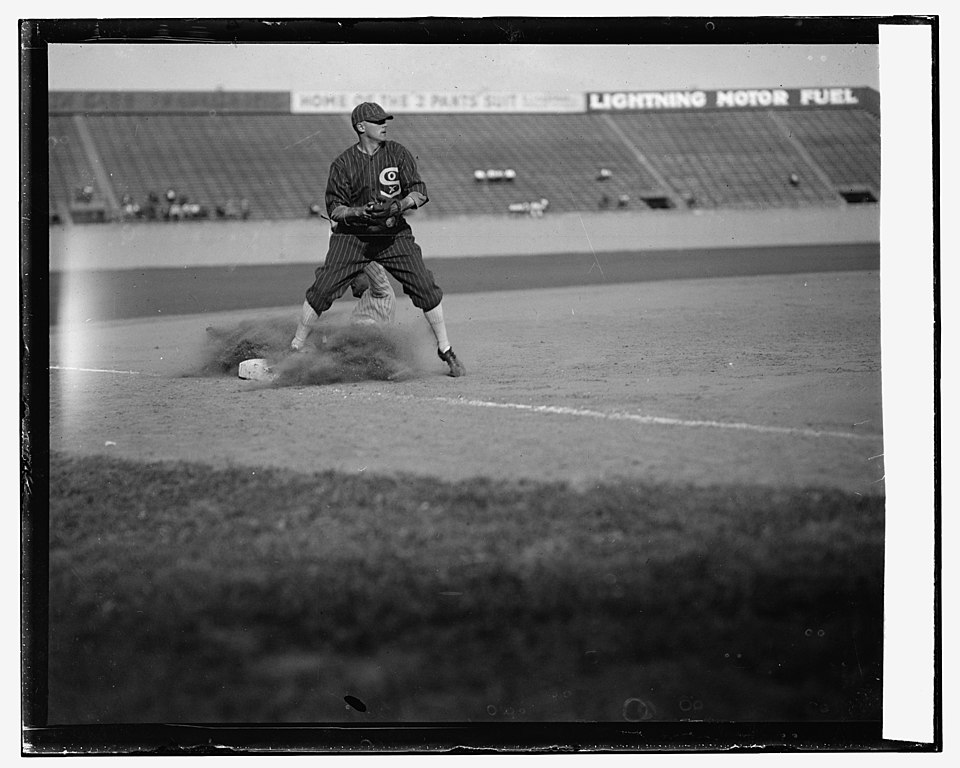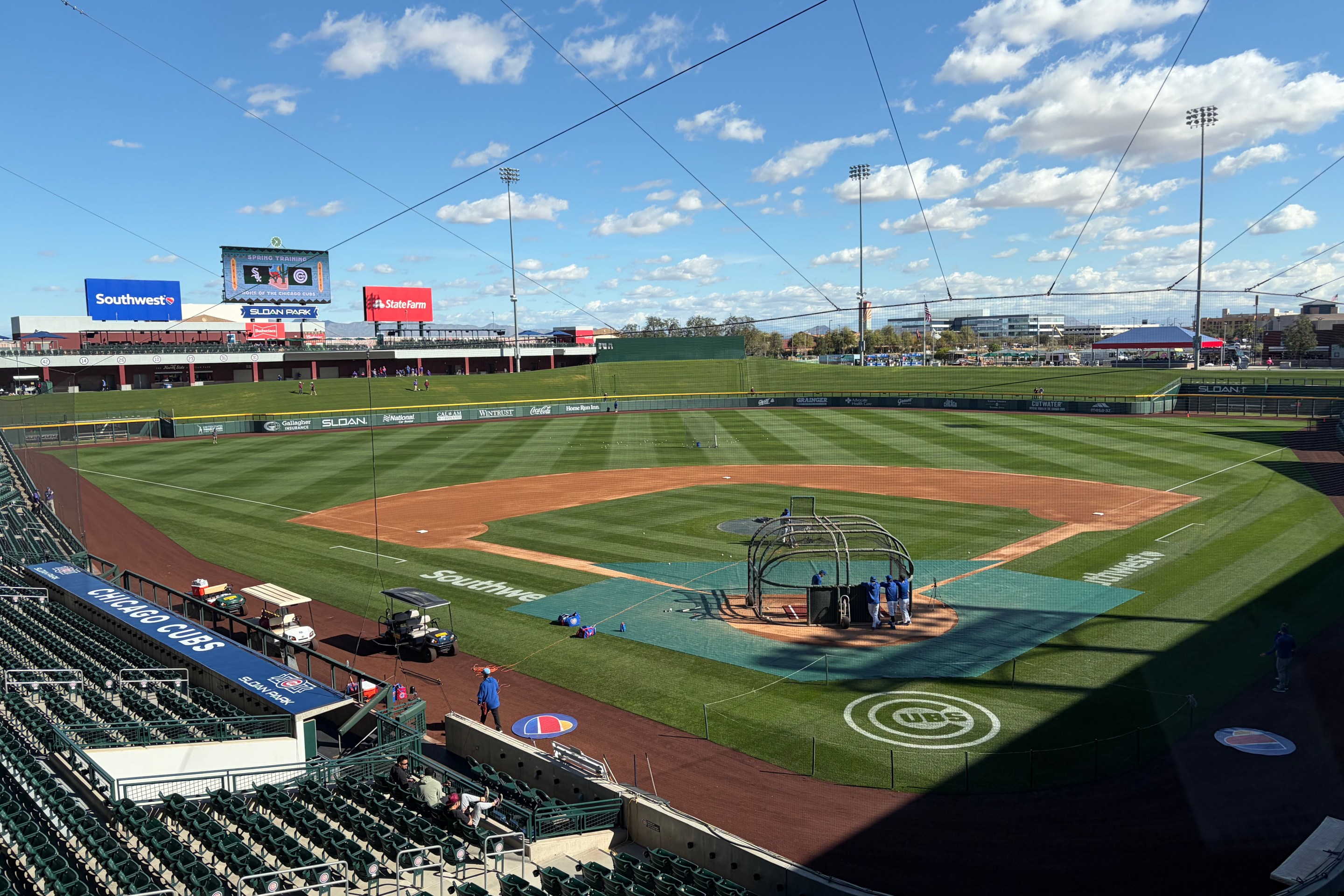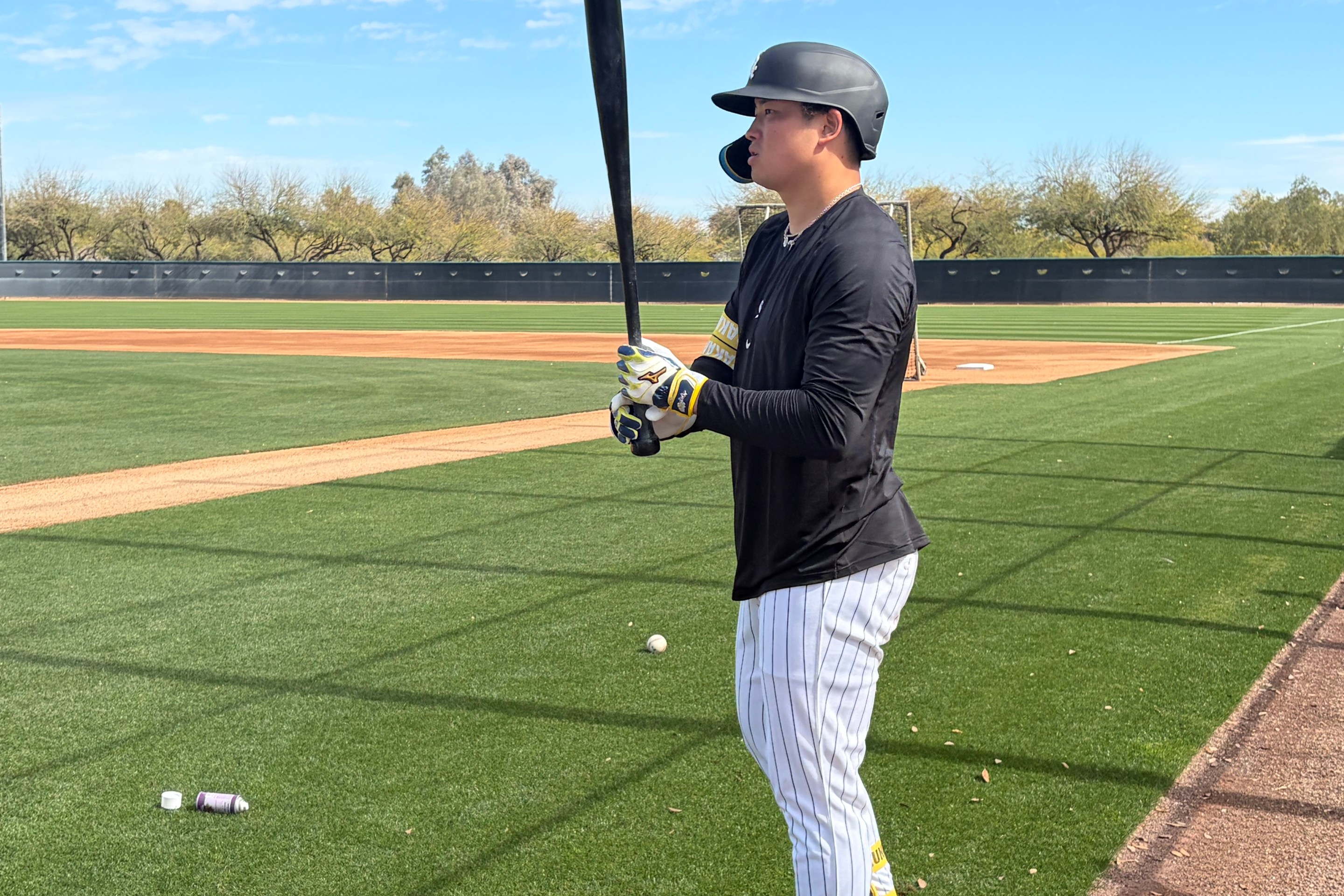This year's Hall of Fame ballot gained three Cooperstown-considerable players while only losing two from the year before, and that math makes it tough on the players whose boxes might've been the last ones checked.
With more than 10 percent of likely voters reporting, Mark Buehrle is indeed in a precarious position. Ryan Thibodaux's Hall of Fame tracker shows that he's dropped beneath the 5 percent threshold to remain on the ballot:
Here are the percentages through 41 logged ballots:
- Adrian Beltre, 97.6
- Todd Helton, 82.9
- Joe Mauer, 75.6
- Gary Sheffield, 70.7
- Billy Wagner, 65.9
- Andruw Jones, 63.4
- Carlos Beltrán, 58.5
- Chase Utley, 53.7
- Manny Ramirez, 43.9
- Alex Rodríguez, 41.5
- Bobby Abreu, 22.0
- Jimmy Rollins, 19.5
- Omar Vizquel, 12.2
- Francisco Rodriguez, 9.8
- Andy Pettitte, 9.8
- David Wright, 7.3
- Mark Buehrle, 4.9
- Bartolo Colón, 2.4
On one hand, 10 percent is a small enough sample that one good week of results could put him back in safe territory for the rest of the period. On the other hand, he's already lost two votes from the previous winter due to the 10-player limit -- including Chicagoland voter Bruce Miles, who was around for the best of Buehrle's career with the White Sox -- which represents the situation Buehrle will find himself battling as the ballots continue to trickle in.
When it comes to players who merit longer consideration, voters who max out their ballot with 10 selections have to go out of their way to account for the larger trends.
A good example of this is Sean Forman, the founder of Baseball-Reference.com. He posted his ballot -- and thought process -- in a Twitter thread, and Buehrle made his ballot specifically because he was in danger of being lost in the larger shuffle.
This approach strikes a sensible balance of pragmatism and emotion, and not just because he seems to agree with my stance that closers shouldn't merit consideration over starters who amassed three or four times the workload. His priorities emphasize expediency at the top and the long game elsewhere:
First year on the ballot: If you think Mauer and Utley are Hall of Famers -- even if they're not inner-circle HOFers -- there's no point in delaying their induction, because each year of delay could cost another worthy player a vote down the line.
Along the same lines:
Players nearing election: If you think Jones or Helton are worthy and they're clearing 60 percent, then every vote at the earliest opportunity helps clear a spot for an up-and-comer.
Last two or three years: There's literally no point in holding off because their eligibility will lapse. Sheffield is getting a huge early bump in his 10th and final year on the ballot, as he picked up just 55 percent of the vote last year.
In danger of falling off: Setting aside the Astros' trash can scheme, Beltrán has the superior Hall résumé in comparison to Buehrle, but since Beltrán didn't meet any of the other Forman's conditions, then he and Rodríguez lost a vote in order to keep a more fragile case like Buehrle's in the mix.
This is the kind of approach that wouldn't necessarily work if everybody did it, because then you'd have a huge blob of 25 percenters who might not make any real headway. But as long as you have a plurality voters who leave the majority of their ballot open, then basing a strategy off the longstanding habits of the group helps keep careers in national circulation for another year. Since Buehrle doesn't stand a chance of gaining induction into Cooperstown through the voters, remaining on the ballot as long as possible is the goal.
The results of the 2024 Hall of Fame vote will be announced on Jan. 23.
PERTINENT: Mark Buehrle’s Hall of Fame plaque would have a story to tell
